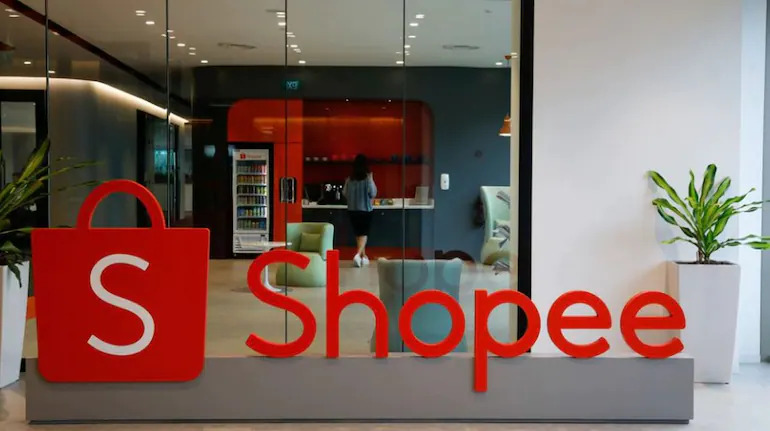Shopee – Southeast Asia’s Largest e-Commerce Platform.
Shopee is an online platform that provides customers with a simple, safe, and quick online purchasing experience. With over 343 million monthly active users as of 2021, it is regarded as Southeast Asia’s largest e-commerce platform.
About The Company
Shopee is a multinational technology business based in Singapore that primarily focuses on e-commerce. The company is headquartered in Singapore Science Park. It is part of the part company Sea Group. Shopee began its operations in 2015 from Singapore. The company also offers online shopping and selling services to buyers and sellers in numerous European and American nations.
History
In 2015, Shopee, a socially driven, mobile-centric platform where customers can browse, shop, and sell, made its debut in Singapore. This platform makes online shopping simple and safe for buyers and sellers by integrating logistical and payment assistance. In order to compete successfully with other e-commerce platforms in the market like Coupang, Lazada, Tokopedia, and AliExpress, Shopee, which was earlier an app, developed its own website. The company uses its own escrow service dubbed “Shopee Guarantee” to guarantee online shopping security as a way to set itself apart from competitors. It withholds payment from merchants until customers have received their items.
In 2019, the company inaugurated its new headquarters at Singapore Science Park. The new facility is six times bigger than the previous one, which was located in the Ascent Building, and has over 244,000 sq. feet of area that can house over 3,000 employees. WeWork in Singapore had previously leased this structure. Due to Shopee’s quick expansion, the lease was later given back to it. By doing this, it intensifies its effort to enter the digital economy.

Business Model
Shopee began as a C2C (consumer to consumer) marketplace but has subsequently transitioned to a hybrid C2C and B2C format. To help its users logistically, it collaborates with more than 70 delivery service companies across its markets. For item pickup and drop in Singapore, Shopee partnered with logistics startup NinjaVan. In India, it collaborated with Delhivery and Ecom Express for the delivery of products. However, in 2022, the company announced that it is shutting its operations in India.
New Launches
An initiative named “Shopee University” was introduced by Shopee in 2016 to help local company owners and entrepreneurs establish their online stores in the Philippines. In the Philippines and Singapore, it introduced Shopee Mall in 2017, which featured over 200 brands. The specialized portal offers thousands of products from top regional stores and brands. Shopee Mall was developed to provide a more varied online shopping experience and to serve more established brands better.
2018 saw the opening of Shopee’s China Marketplace platform, which gives consumers in the Philippines and Singapore simple access to goods and products from Chinese vendors without paying shipping or agent costs. Shopee Philippines introduced Shopee Cares PH, a social-media customer support division active on Twitter and Facebook, in 2021. In 2021 it also introduced its food delivery services in the Malaysian and Thai markets.
Controversies
In 2019, Shopee Philippines was accused of defrauding Filipino fans of the Blackpink. #ShopeeScam became a trending topic on Twitter around the world. The 568 top spenders on Shopee Philippines’ online store were given tickets to a Meet and Greet session as part of a campaign. However, a number of fans claimed that after receiving confirmation that they had won tickets, It then withdrew them. Others shared screenshots demonstrating how Shopee had altered the rules of the contest a day before this event. Currently, the Department of Trade and Industry is looking into Shopee.
Founder – Forrest Li
Forrest Li founded Shopee in 2015. He is a multibillionaire businessman from Singapore. He also founded Sea Limited. Garena and Shopee are subsidiaries of Sea Limited. Li, a Chinese national born in Tianjin, moved to Singapore soon after receiving an engineering degree from Shanghai Jiaotong University. He also has an MBA degree from Stanford Graduate School of Business.
CEO – Chris Feng
Chris Feng is the CEO of Shopee. He is also the CEO of Sea Group’s division for financial services and digital payments, called Seamonkey. Feng oversaw the mobile games department at Sea Group before assuming his present position. Before joining Sea Group, he was a member of the Southeast Asia core team of German startup Rocket Internet, which helped launch online stores like Lazada and Zalora. He was also Lazada’s chief purchasing officer and a regional managing director at Zalora.

I am a law graduate from NLU Lucknow. I have a flair for creative writing and hence in my free time work as a freelance content writer.
